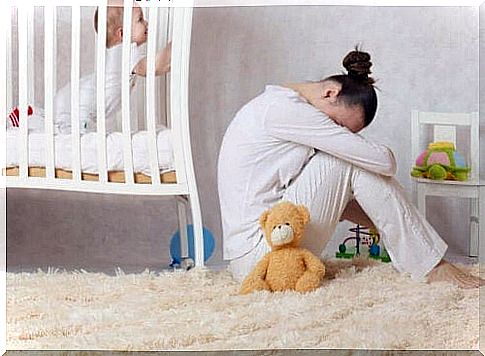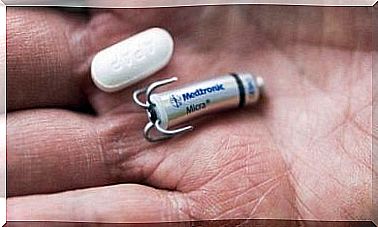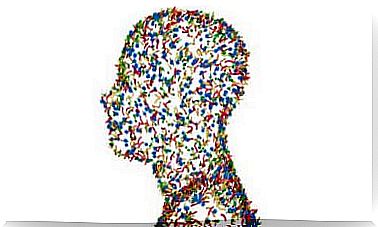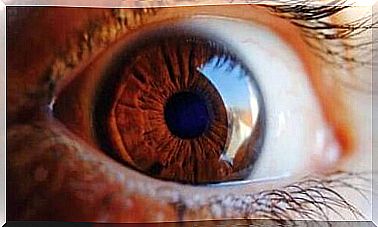How To Recognize A Postpartum Depression And Treat It

Although the birth of a baby is a very exciting time for the family, some mothers may feel overwhelmed by an inexplicable and intense feeling of sadness that lasts for several days. In this article, we will talk about how to recognize a postpartum depression.
According to a study by the Autonomous University of Barcelona , this type of depression affects 10-15% of women. Even a planned pregnancy can not prevent this condition. The sudden drop in hormones that the body experiences after the baby is born can obviously be a trigger for the symptoms. However, they are not the only reasons.
The most troubling thing for those who suffer from postpartum depression is usually the problem of facing social and family-related prejudices.
Even though it is a common problem, there are still many people who do not think it is an important topic or who do not take the time to understand it. For this reason, many women suppress their emotions to seem happy and content. Let’s dive deeper into it.
Recognizing a postpartum depression: What is it?

A postpartum depression is a mood disorder that typically manifests itself after giving birth or even two to three months after. It is characterized by extreme sadness, a feeling of both physical and mental exhaustion, anxiety and a general malaise that can last for weeks or months.
To begin with, this disorder can be confused with baby blues. The difference, however, is that with a postpartum depression, the symptoms are more intense and persistent. In addition, they affect the woman’s ability to care for her baby and perform daily tasks.
This is because women often experience great difficulty in establishing a bond with their child, while also experiencing feelings of worthlessness because they are not good enough mothers.
Many women are ashamed of how they feel. They do not want to ask for help because a birth is meant to be an exciting and happy time in one’s life. However, it is important to keep in mind that there is not just one way to handle motherhood properly. For this reason, it is important to ask for help when you are not feeling well.
How to recognize a postpartum depression
As we mentioned earlier, it can be difficult to recognize a postpartum depression, as it can be a simple reaction to the fatigue and stress that comes with becoming a mother.
However, when experiencing a state of intense sadness and despair, one should begin to consider that it may be a real problem. Here are some of the main symptoms:
- A feeling of sadness, emptiness and hopelessness.
- Intense and prolonged crying without knowing the cause.
- Loss of interest in activities that one used to enjoy.
- Violent concerns about this new phase.
- Lack of ability to attach to the baby.
- Difficulty sleeping at night and drowsiness.
- Lack of appetite or the opposite of it, which is great anxiety around food.
- A violent guilt or worthlessness.
- To feel anxious or lazy.
- Loss of concentration and difficulty making decisions.
- Constant irritation and anger.
- Social and family-related isolation.
- Loss of interest in caring for baby.
- Feeling very tired and unable to get out of bed.
How to treat a postpartum depression?

It is difficult to determine how long a postpartum depression will last, but most cases get better within a few weeks. Doctors recommend starting a treatment right from the start. If you do not do this, the symptoms may last longer.
A postpartum depression is treated like any other depression. Before taking medication, however, it is recommended that you start with a psychologist. This is especially true if the mother is breastfeeding her baby.
Psychotherapy can be performed individually or in a group. If necessary, you can try to find a family therapist so that you can work on it with your partner and a close family member.
In addition to those treatments , it is best for the mother to rest a lot and follow a healthy diet. Persistent exercise of healthy habits helps to improve mood and reduce the risk of relapse.
Strategies to prevent postpartum depression

Since a postpartum depression can have several causes, it is difficult to say how it can be avoided. However, by taking some things into consideration before and after the birth, the risk can be minimized. Here are a few things to keep in mind:
- Get a good night’s rest every day and try to rest when needed.
- Seek support from other mothers who have been through a similar situation.
- Take a walk daily and take advantage of gentle exercises: Walking or stretching.
- Do not compare yourself with others.
- Make household chores simpler. This is not the time for your house to be radiantly clean.
- Postpone visits so you can rest.
- Eat foods that can improve your mood.
- Increase your intake of water and healthy fluids (juices, teas).
- Spend time with your partner.
- Find distractions (shopping, watching a movie, eating with the family).
- Exercise deep breathing and relaxation methods.
- Work on your self-esteem.
- Take control of any doubts you have about your abilities as a mother.
Do you think you are experiencing any symptoms of a postpartum depression? Do not ignore them! Even if you are afraid of being convicted, it is essential that you ask for help so that you can deal with this problem. If you suppress how you feel, you can start to get even worse over time.









